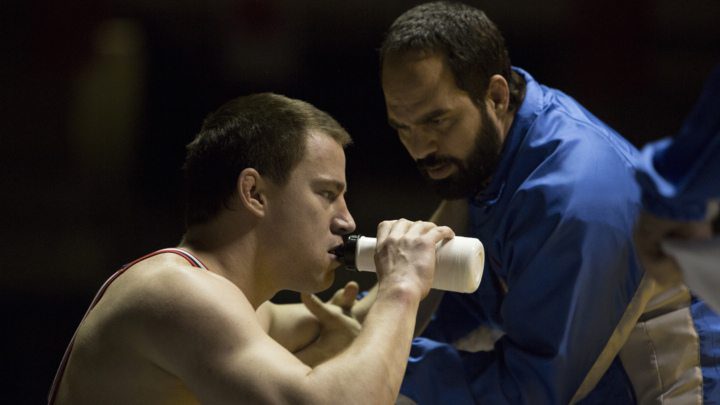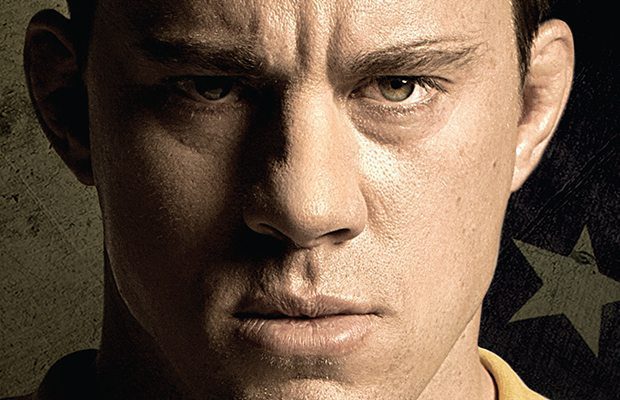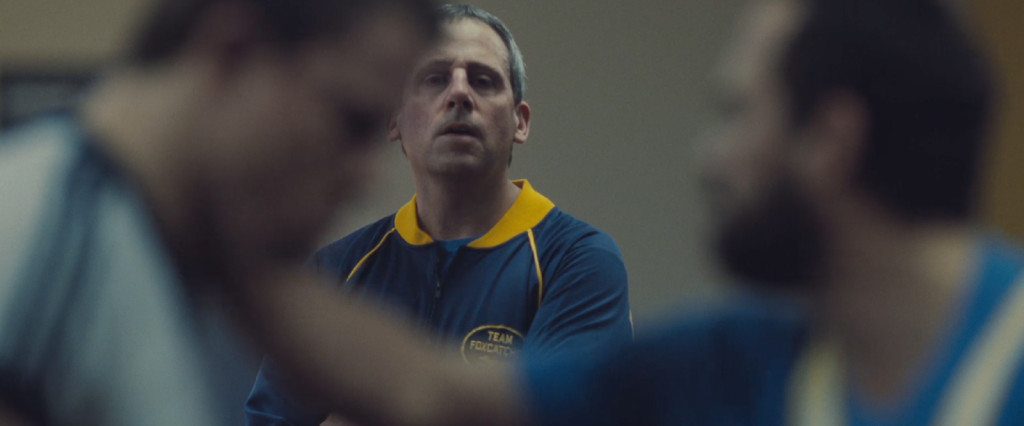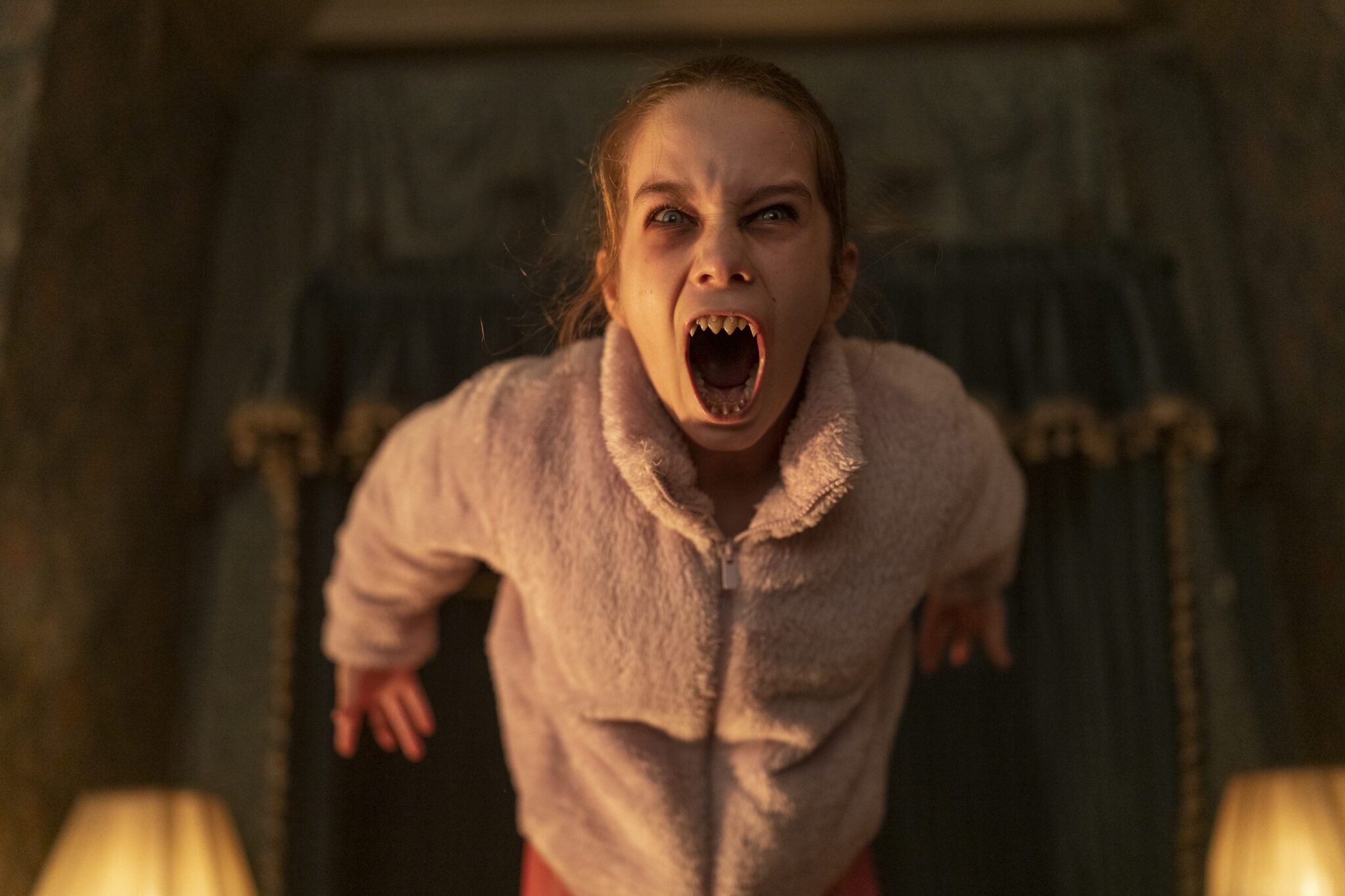Foxcatcher?is as difficult to write about as it was to watch. I have seen it three or four times now, and it does not lessen the difficulty of watching such a tense and dramatic film. Despite that, it is a great film, deserving every nomination for every film award it got! There is no other film like it. Steve Carell, Channing Tatum, and Mark Ruffalo all gave outstanding performances.
The difficulty of watching this film is that it is true.
Foxcatcher is the story of John du Pont (Steve Carell) whose desire to achieve something on his own draws him to sponsoring the US Olympic wrestling team in the 1980s. Du Pont knows nothing about wrestling, but it does not stop him. From the moment we meet du Pont, though we barely recognize Carell, we know that there is something not right.
The same could be said about Channing Tatum’s Mark Schultz. The trophies and metals in his apartment seem to stand as a memorial to what was in Mark’s life. Mark goes from making a speech to elementary school students about the Olympics to making a speech (prepared by du Pont’s people) about the father-figure that John du Pont has become in his life. These speeches stand in contrast to where Mark’s life has taken him.
John du Pont seeks out Mark to achieve his vision of being a part of a winning team. There are hints that he goes to Mark to get to his brother Dave (Mark Ruffalo), an experienced coach. In this attempt, John befriends Mark, making promises and sharing intimate stories. John sets himself up to be the father-figure that is missing in Mark’s life. Mark does not seek him out as a mentor; John positions himself to be such. On the way to the event where Mark is give a speech that John’s staffers wrote, John shares cocaine with Mark and teaches him how to use it. From there we see a decline in Mark.
There is something not right here.
Between the two of them, John and Mark fill the screen with emotional damage. This damage is so settled within their very core, that is difficult to see, yet it explains everything.?After participating in drug use with John, Mark begins to change, which is depicted by his appearance. He dyes his hair and he dresses differently. He spirals into self-destruction.
After he loses a match that he should have won, Mark returns to his hotel room to grieve. What follows is one of the most intense scenes in the whole film.?Without any words, the real wrestling in Mark’s soul is revealed.
Filled with anguish, Mark sends his head into a mirror, glass breaking. He orders carts full of food and stuffs his face. His nameless internal wrestling bursts forth. The fighting ends with Mark collapsing to the floor. This is how David finds him. Bloodied. Defeated. Full of carbs. The wounds can be bandaged. The carbs can be handled. David puts his attention on Mark’s battered soul.
In the shadows of the hotel room, Mark is curled up on the bed, with David bent over him. As they do when they wrestle, they become one lump. David says to his younger brother, “You’re not in this alone.”
When you are in your darkest moment, dwelling in the shadows of life, there is nothing more meaningful than someone whispering, “You’re not in this alone.”
In the Hebrew Bible, Jacob wrestled with an angel (Genesis 32) all through the night. Some have suggested that the angel represented God and the wrestling was over whom God was calling Jacob to be: Israel – the father of a nation. In Romans 7, Paul describes a fight with himself – “I do the things I know I shouldn’t do and I don’t do the things I know I should do.” In Ephesians 6, Paul says that the struggle we go through is not one of flesh and blood, but one with the spiritual forces of wickedness.
We wrestle with God, with ourselves, and with forces of injustice.?
The beauty of the film is that it does not state the obvious. We do not know for certain why Mark is emotionally damaged. Nor do we know why John is, though the film leaves clues as to why they may be. So often that is the case. We see others wrestling with their inner selves, not knowing why. We can, however, say to them, “You’re not in this alone.”







